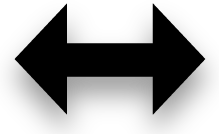
After reviewing over 330 applications, the group of peers, which included Lydia Ourahmane (visual artist, Algiers/Barcelona), Simon Asencio (artist, Brussels/Marseilles) and Yasmin El-Rifae (writer and editor, Cairo/London), invited nine artists whose practices they were excited to support and follow to participate in the program. The participating artists are:
Dalia Khalifa (b.1992, Lebanon) is a scenographer and performer whose practice examines psycho-physiological happenings in relation to power structures, social events, and rituals and their theatricality. She looks at the role of socially constructed images on identity formation, and the paradoxes that emanate from them. Her upcoming project explores heat and sweat as manifestations of a political condition.
Diana Al Zubi (b.1998, Jordan) is a visual artist using layered mediums, such as painting, photography, and video, to weave stories based on captured memories, turning them into fragments. She is currently researching photos from her mother’s archive using analogue photography.
Dita Hashi (b. 1998, UK/France/Somalia) is an artist-worker based between London and Paris. She works across moving image, painting and writing which she uses to explore the flesh, riots and (the impossibility of) citizenship. Her arts practice draws heavily on her training in the humanities, and she views it as a counter space to the disciplinary, compartmentalized void of the academy. This underpins the nature of Dita’s artistic work as both text and research driven as well as process based.
Hiba Hussein (b. 1992, Lebanon/Palestine) is a translator and peace-building community development practitioner and activist based in Lebanon. She is also a trans-disciplinary artist interested in video and performing arts, specifically clowning, movement, and dance, and integrating them into her storytelling.
Maria Khorzom (b. 1999, Syria/Palestine) is a Syrian-Palestinian sound artist and researcher whose practice involves sound collage, DIY instruments, and sound sculptures. She is interested in the sonic deconstruction of memory, the intersection of art and documentation, and the matrilineal inheritance of objects amongst SWANA women. She is currently producing new work using cassette recordings of her grandparents’ landline phone from Damascus, Gaza, and Ramallah.
Marwa Benhalim (b.1992, Libya) is an artist and curator based in Cairo. Through her practice, she explores the macro and micro nuances of power in political, social, familial, and material culture. She is currently conducting research on Libyan cuisine, its development, and influences by collecting oral histories and recipes, in collaborations with family members, cooks, artists, researchers, and anthropologists.
Mouhawalat Collective (f. 2020) is an artist collective shaped around the concept of “making attempts” to build creative dynamics outside of normative codes that enable new ways of learning. Diyae Bourhim (b.1999, Morocco) and Ahmad Karmouni (b.1994, Morocco), visual artists and co-founders of Mouhawalat Collective, are currently developing Mouhawala 02: a publication addressed to young artists offering them reflections and tools to interrogate the generational disruptions in the art scene in Morocco.
Sara Sukhun (b.1989, Jordan) is a designer and researcher. Her practice delves into art and architectural history and theory, while engaging with printmaking and writing. She is currently investigating decay and preservation through research on Oscar Niemeyer pavilion in Tripoli, Lebanon.
Sofiane Zouggar (b.1982, Algeria) is a visual artist working with video, installations, photography, and drawing. His experimental work investigates history by questioning archival material. His current research is centered around football stadiums in Algeria as an alternative space of political resistance in Algeria, from colonial times and until today.
The advisory committee for 2022 was made up of:
Lydia Ourahmane is a visual artist based in Algiers and Barcelona. Her research-driven practice links the personal, spiritual, and geopolitical, drawing on complex histories of colonialism to engage paradoxes of belief and ideas of displacement. Recent and forthcoming solo exhibitions include MACBA, Barcelona (2023), SMAK, Ghent (2022), Portikus, Frankfurt (2022), KW Institute of Contemporary Art, Berlin (2022), De Appel, Amsterdam (2021), Triangle-Astérides, Marseille (2021), Kunsthalle Basel (2021), CCA Wattis Institute for Contemporary Arts, San Francisco (2020) and Chisenhale Gallery, London (2018). Her work was included in the 34th Bienal de São Paulo (2021) and the New Museum Triennial, New York (2018).
Simon Asencio is an artist based between Brussels and Marseille. He works with performance settings that question the notions of liveness, stage and audience. His work takes the form of exhibition scenarios, text-based ephemera and covert acts. His current body of work is dedicated to forms of obscurity in and through text, at the intersection between performance, literature studies and critical pedagogy. In 2022, he was Associated Researcher at a·pass / advanced performance and scenography studies in Brussels with his research Quire Whids. Simon is professor of performance at the Marseille Art Academy and regularly teaches at ISAC – Institut Supérieur des Arts et Chorégraphies in Brussels.
Yasmin El-Rifae writes and edits essays, reported journalism, and cultural criticism. She recently published Radius, a work of narrative nonfiction and memoir, about a feminist group which fought mob sexual violence in Tahrir square during the 2011 revolution. Yasmin works with independent online newspaper, Mada Masr.
This edition was partially supported by The Andy Warhol Foundation for the Visual Arts.